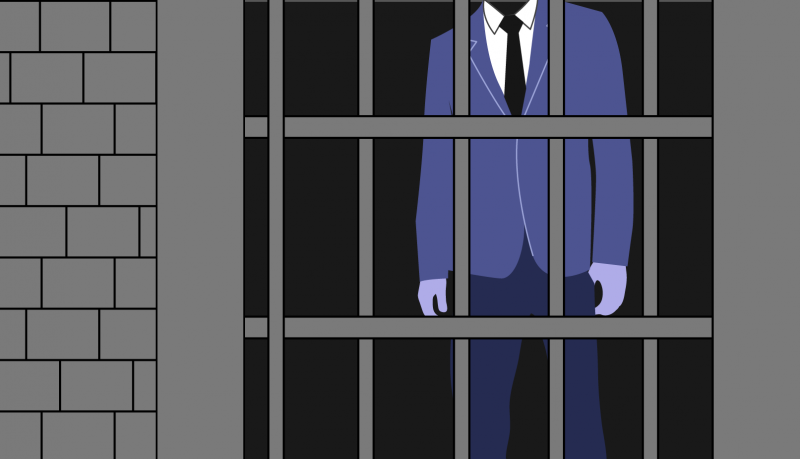Four years after the 2016 coup attempts in Turkey, repercussions of the tensions between the long-standing leading party and its rivals are still felt among many.
Mehmet Said Noyan, 20, fled Turkey in 2017 following his father’s imprisonment.
“I think it was eight or nine in the morning,” Noyan said. “[My father] was having breakfast, and the law force came and said ‘sir, we have orders to take you in, we’re going to have to rush you.’ And so they did, and he’s been in jail ever since 2016.”
Noyan’s father, Ömer Faruk Noyan, was a university professor in Turkey. During his off time, Ömer parted in the Gülen movement. The Gülen movement—or Hizmet in Turkish, named after its leader Fethullah Gülen—is a non-governmental religious movement that promotes democracy while focussing on education stemming from “Islam’s universal values, such as love of the creation, sympathy for the fellow human, compassion, and altruism,” according to their website. The movement first appeared in 1960 and has been growing in popularity since the ‘80s.
Once strong allies of the Erdogan government, members of the Gülen movement became one of Erdogan’s greatest foes. So much that, since 2016, thousands of its members were targeted and imprisoned for their involvement in the Gülen movement, including Noyan’s father and uncle.
After leaving his family and his life behind two days after his 18th birthday, Noyan fled in a delicate attempt to California where he made his way to Quebec. He now studies political science at Concordia University.
But going back to Turkey is out of the question for Noyan. “I might get arrested myself because of my father and my affiliation with [the Gülen] movement,” he said.
In 2014, Turkey’s leading party, Justice and Development Party, underwent allegations of corruption and bribery. Although all charges were dismissed for the majority of the suspects, the government blamed the Gülen movement for orchestrating the investigations, paving the way for an attempted coup two years later. The movement was said to hold strong influence among the ranks of Turkish institutions such as the judiciary, the police, and the secret security sector, as explained in an article by The Guardian; all of these institutions spearheaded the investigation against government officials.
Individuals like Noyan’s father were accused of attempted terrorism, trying to bring the government down and hate speech against the prime minister, “none of which he had done,” Noyan said. “He’s a civil engineering professor and also a geologist back in Turkey, so I don’t know how he was in any way affiliated to these accusations. But they had to get rid of this opposition that was not working in their favour.” Although Noyan admits that some members could have acted in bad faith, he condemns Turkey’s “bold accusations.”
In Ömer’s ruling, it was stated that there was no tangible evidence other than statements from fellow detained members, translated Noyan from the official document written in Turkish. Noyan explained that tactics used by officials to target individuals resembles giving names in exchange of liberation. “And I get that as people trying to survive,” Noyan said, although condemning these acts as unethical.
Since his father’s detainment, Noyan’s family, with the expertise of his sister who is a lawyer, applied to all levels of courts in Turkey, none of which were accepted. However, last November, the European Committee of Human Rights settled a hearing with the specific date still unknown. However, Noyan is pessimistic about the process, he explained, since Turkey would be reluctant to give compensation to released prisoners.
Ömer’s sentence is coming to an end with little more than 10 months left to serve. Noyan still doesn’t know what will happen to his family since the interactions with his father consist of 10-minute periods every Friday morning over What’s App. Afraid of the calls being tapped, his conversations with his father barely passes the threshold of “how was your day and university,” he said. The difficulty of knowing what will happen also lies in the bans set on released prisoners.
They don’t let you out of the country, they don’t let you go to work, they just make you sit at home all day,” Noyan explained, referring to his uncle, who was released a few months ago. “As a man of his caliber, who speaks four or five languages, has published many books, appeared on national television and studied in France, it’s pretty much social death to my father.”
Such repercussions already affected his mother, Sümeyra, who was denied unemployment benefits and help finding work due to her husband’s situation.
While his father’s decision is underway, Noyan is focusing on his degree and hoping for the best. He wishes to start law school, following his sister’s curriculum, which he finds ironic considering how unlawfully Turkey judged his father, he joked.
Graphic by @sundaeghost




